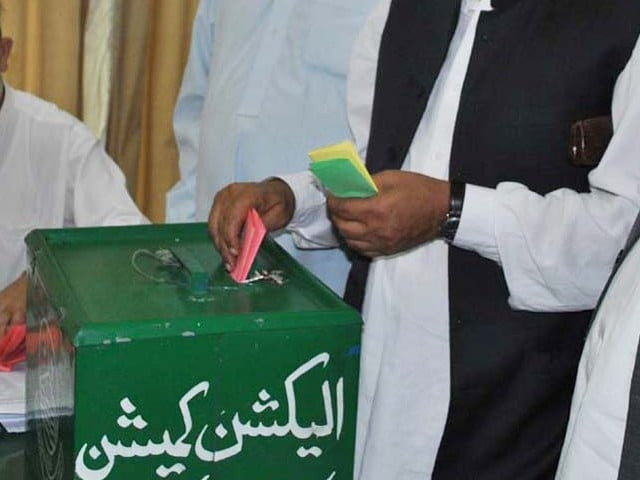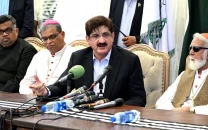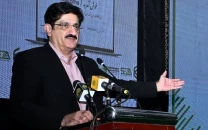Vote where you belong, not where you work, say some critics
ECP urged to resolve the issue of voters’ registration against permanent or present address.

Vote where you belong, not where you work, say some critics
Voter displacement emerged as a hot topic at seminars organised by the provincial Election Commission in the Hyderabad division on Wednesday in all nine districts where more than 4.6 5 million voters are registered.
The problem appears to be that the old lists of voters registered them by their temporary home addresses. The new lists, however, were made by registering people by their permanent addresses. This creates a problem especially for parties in Karachi and other urban centre in Sindh. If a Peshawar resident, for example, was listed by his temporary address in Karachi, some parties say that he should not be allowed to vote here.
Although no authentic data is available to help ascertain the scale of the ‘displacement’ wild estimates suggest that in Hyderabad district alone the number could be as high as 30,000.
“The voters who have been registered on the electoral rolls on the basis of their permanent addresses instead of the temporary ones fall in this category,” explained the Regional Election Commissioner, Attaur Rehman, while talking to The Express Tribune.
Rehman was not convinced about the guesstimate even though he suggested that the people who want to vote in the area of their temporary address can correct their record with the Election Commission.
“The Election Commission last year, carried out a door-to-door voter verification campaign. The voters registered on the permanent addresses are those who either opted for it or whose temporary addresses could not be verified,” Rehman said.
The Election Commission is trying with the help of civil society and the media to create awareness. Corrections, additions and deletions are a part of this.
The Election Commission recently conducted an internal inquiry. “The problem in verifying temporary addresses was identified in areas dominated by certain political groups,” an official told The Express Tribune. He claimed that the problem mainly related to Karachi.
A participant at the seminar in Hyderabad claimed that more than 18,000 entries from the 2007 electoral rolls have gone missing. “The new voter list lacks more than 14,000 people from Hyderabad rural and over 4,000 from Qasimabad,” he claimed while seeking an explanation from the Election Commission officials.
The district election commissioner, Asghar Siyal, clarified that the number in Qasimabad has gone down because most of the voters originally hail from other districts of the province. They preferred to be listed at their hometown addresses.
A local leader of the Muttahida Qaumi Movement, Navaid Shamsi, expressed concern over the lack of permanent polling stations in Hyderabad district. He also recommended that the display centers should be opened in all union councils, election blocs and circles. He pointed out that the Election Commission has yet to register 9,012 people of Hyderabad.
MQM MPA Waseem Ahmed objected to giving voting rights to people who come from other provinces for work or business.
Women voters
Women’s registration was highlighted at a seminar in Dadu. Pakistan Peoples Party MPA Kulsoon Chandio and Rubab Jaffri, a rights activist, said a majority of women in the villages and ignored areas do not even understand the importance of their vote. “Bullies rule the roost on election day. They fill the buses, trucks and vans with the voters like herds,” Jaffri commented.
A local leader of the PPP, Dost Ali Jahesar, claimed that around 20% of the rural population does not have identity cards. He requested the Election Commission and NADRA to register these people before the elections. More than 600,000 are eligible to vote in Dadu down from 828,000 in 2008.
In Thatta, where over 642,000 voters are registered, a representative of the Free and Fair Election Network, Muhammad Shafique, pointed out low women turnout in the district.
At a seminar in Mithi, Tharparkar, former district nazim Arbab Anwar accused the commission of changing a large number of polling stations to favour the candidates of the ruling party. Anwar belongs to the party of former chief minister, Arbab Ghulam Rahim.
Published in The Express Tribune, October 19th, 2012.



















COMMENTS
Comments are moderated and generally will be posted if they are on-topic and not abusive.
For more information, please see our Comments FAQ